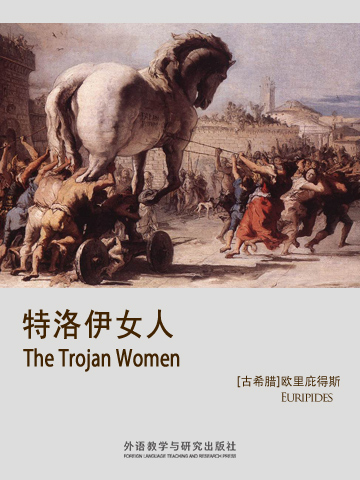The Trojan Women was the third tragedy of a trilogy of dealing with the Trojan War. The first tragedy, Alexandros, was about the recognition of the Trojan prince Paris who had been abandoned in infancy by his parents and rediscovered in adulthood. The second tragedy, Palamedes, dealt with Greek mistreatment of their fellow Greek Palamedes. This trilogy was presented at the Dionysia along with the comedic satyr play Sisyphos. The plots of this trilogy were not connected in the way that Aeschylus’ Oresteia was connected. Euripides did not favor such connected trilogies.
《特洛伊女人》(公元前415)也是欧里庇得斯(公元前480年——前406年)的著名悲剧。这个剧本假托特洛伊战争的故事,反映了雅典人在公元前416年攻下守中立的墨罗斯岛、大肆杀戮的历史事实。剧中描写特洛伊城被焚毁,男子被杀尽,女人沦为奴隶,赫克托耳的幼子被希腊人从城墙上扔下来摔死,景象很悲惨。剧中抒情气氛浓厚,心理描写深刻,但是各场之间的联系比较松散。欧里庇得斯的代表作《特洛伊女人》中,他把特洛伊城陷落之后特洛伊女人所承受的人间苦难描写得淋漓尽致,并转向一种对生命的哲学思考,从中升华出一种悲剧的庄严和秀美。
The Trojan Women, also known as Troades, is a tragedy by the Greek playwright Euripides. Produced in 415 BC during the Peloponnesian War, it is often considered a commentary on the capture of the Aegean island of Melos and the subsequent slaughter and subjugation of its populace by the Athenians earlier that year (see History of Milos). 415 BC was also the year of the scandalous desecration of the hermai and the Athenians’ second expedition to Sicily, events which may also have influenced the author.
- The Trojan Women
- 书评 写书评
- 笔记
-
书评加载中...














 京公网安备 11010802032529号
京公网安备 11010802032529号
笔记加载中...